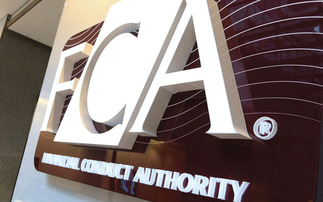Complaints about bad advice over the last five years have cost the sector nearly £1bn - the equivalent of £45,000 for every adviser in the UK, an investigation by COVER's sister title Professional Adviser can reveal.
Since 2010 the Financial Services Compensation Scheme (FSCS) - body of last resort for investors with complaints against firms that have ceased trading - has paid out £989m to deal with claims linked to investment, life and pensions advisers.
The cost is then spread among advice firms that are still trading, collected yearly in the form of compulsory levies.
Adviser numbers have fluctuated since 2010, but the Financial Conduct Authority's (FCA) latest figures put the population at around 22,000. If that figure is used as an average for the last five years, the cost of upheld claims against advisers in that time is almost £45,000 each, or £9,000 a year.
Bottom line hit
Advisers have expressed their ongoing frustration at having to foot the bill for the "criminals, the sharks and the charlatans" who cut and run on their liabilities, and the real terms damage it does to a trading firm.
Rohan Sivajoti, founder of single adviser firm Postcard Planning, said £9,000 would pay the running costs of his business for six months.
Chris Budd, adviser at IFA Ovation, said £9,000 would pay one year's business rates for his firm, or two thirds of the annual salary for an apprentice.
In fact it is only about half what his firm pays yearly in FSCS levies, he said.
Adam Carolan, director at Xentum, also said his annual FSCS bill is around double the £9,000 average: "Our compliance, FCA and FSCS costs are around 12% of our turnover," he said.
David Penney, director at Penney Ruddy & Winter, said £9,000 would pay his firm's insurance bill for the year - including professional indemnity insurance and income protection for staff.
Five year fallout
The last five years have been a tumultuous time in financial services, as the impact of bad investments and advice given in the heady days before the financial crisis in 2007/8 has unwound.
Fallouts from widespread mis-selling linked to huge investment failures including Keydata, Arch Cru, Arck and Harlequin Property have led to 85,000 advice-related claims for compensation being upheld by the FSCS in the last five years.
"I don't mind chipping in to alleviate the plight of a client who has been disadvantaged by an otherwise well-meaning adviser. But why should I, as a hard working adviser, pick up the tab up the bill for the criminals, the sharks and the charlatans?" Al Rush, adviser and founder of FiverADay, said.
"Forty five thousand pound is an obscene amount. It restricts the growth of businesses which want to practice fairly.
"Any society compels the blameless to sometimes pick up the blame for the blameworthy, like car insurance. But the cost of doing business could be made fairer for those who conduct low risk business, or who have built up a form of no claims discount.
"Surely it would be in the regulator's interests to aggressively stamp out the cowboys, promote decent practices and not stifle them by this constant financial equivalent of making us try to run a marathon with a broken ankle?"
FCA pledge
The FCA pledged in October to address the 'good guys pay' FSCS funding model.
A review of the FSCS's funding took place in 2013 by the FCA's predecessor the Financial Services Authority, but FCA chairman John Griffiths-Jones confirmed a further review will take place.
MPs suggested money raised by the FCA from enforcement cases could be used to pay for a FSCS "stabilisation" fund, which the scheme could draw from when it reaches the limit of its compensation budget.
FCA acting chief executive Tracey McDermott, who was being questioned by MPs alongside Griffith-Jones at the time, suggested the regulator was open to the idea, but added it was not in charge of allocating the funds raised from enforcement, which is a Treasury decision.














